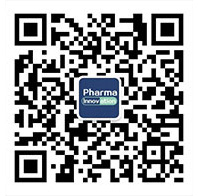In an updated clinical guideline on attention-deficit/hyperactivity disorder (ADHD), the American Academy of Pediatrics (AAP) stresses the need for ongoing team-based treatment that includes medical and mental health professionals, as well as families and school staff. The recommendations also emphasize the importance of identifying comorbid conditions such as depression and learning disorders.
The guideline, by Mark L. Wolraich, MD, FAAP, from the Section of Developmental and Behavioral Pediatrics, University of Oklahoma, Oklahoma City, and colleagues from the AAP's Subcommittee on Children and Adolescents With ADHD, was published online September 30 in Pediatrics. This is the second revision of the clinical practice guideline that was first published in 2001 and was last updated in 2011.
Wolraich and colleagues updated an accompanying process of care algorithm that presents specific steps clinicians can take to implement the guideline. These steps are not meant to be implemented in one office visit. "Evaluation, treatment, and monitoring are ongoing processes to be addressed throughout the child's and adolescent's care within the practice and in transition planning as the adolescent moves into the adult care system," they write.
The guideline authors note, however, that published research related to ADHD does not support dramatic changes to the previous recommendations. "Hence, this new guideline includes only incremental updates to the previous guideline."
Focus on Parent Education in Young Children
One of the most important changes relates to the new review of the relevant medical and behavioral literature, explained Joseph F. Hagan Jr, MD, FAAP, coauthor of the guidelines and vice chairperson for the AAP Subcommittee on Children and Adolescents With ADHD. "We were especially interested in published data that brought an evidence base to our recommendations. Consistent with AAP policy, evidence is marked for the key action statements of this guideline," he told Medscape Medical News.
The guideline updates the section on medical and behavioral treatment. Treatments for ADHD are largely unchanged; the authors stress the need for continued medical care and coordination with school personnel and others in the community.
A key action statement recommends that for children aged 4 and 5 years, the first line of treatment should be evidence-based training of parents regarding behavior management and/or behavioral classroom interventions. "Medications may also be used, but the focus on parent training in behavior management as a first-line treatment is now emphasized," Hagan said.
Research indicates there is some benefit for similar training of parents and teachers in behavior management for high school students with ADHD.
Diagnostic criteria in the American Psychiatric Association's Diagnostic and Statistical Manual of Mental Disorders, Fifth Edition (DSM-5) are basically unchanged from those in the DSM-IV, except that the DSM-5 raised the required age at the time of symptom onset from before 7 years to younger than 12 years.
Patients aged 17 years or older need to demonstrate fewer problem behaviors from the DSM-5 than younger patients to be diagnosed with ADHD. Some symptoms, such as hyperactivity, may decrease in severity as children mature.
Most children with ADHD meet diagnostic criteria for at least one other mental disorder, the authors write. The updated guideline includes a new key action statement that recommends that clinicians "include a process to at least screen for comorbid conditions, including emotional or behavioral conditions (eg, anxiety, depression, oppositional defiant disorder, conduct disorders, substance use), developmental conditions (eg, learning and language disorders, autism spectrum disorders), and physical conditions (eg, tics, sleep apnea)."
Clinicians should remember that ADHD is a chronic disorder and should follow "the principles of the chronic care model and the medical home." These models will be especially helpful to parents who have ADHD themselves, the authors explain.
Additional Recommendations
The guideline provides recommendations for ruling out other possible causes of the patient's symptoms and for identifying comorbidities, including depression, anxiety, substance use, autism, and trauma.
"We know that a child diagnosed with ADHD will benefit most when there is a partnership between families, their doctors, and their teachers, who may need to create special instructional plans and support," Hagan said in an AAP news release.
"Coaches, school guidance counselors and other people who play a significant role in a child's life often have a lot they can contribute in providing information and working on solutions.
"While we know ADHD can be challenging and frustrating for families, children who are identified early and receive proper treatment can learn to manage their symptoms and be successful," Wolraich said in the news release. "With the help of supportive and caring adults, this is a team effort that pays off over the long term."
PS:4th China Pharma IP
Summit 2019 (CPIPS2019) organized by Shanghai YIP Events, Supported by Pharma
IP Right Research Committee of Chinese Pharmaceutical Association, which will
be held on 23rd-25th , Oct at Primus Hotel Shanghai Hongqiao China this year.
which presents an unrivalled gathering of in-house patent counsel from
established and fledgling pharmaceutical and biotechnology companies coming
together to listen to updates on patent prosecution and enforceability from
global jurisdictions,
The conference provides delegates with an
invaluable opportunity to gain insight into the sector issues of critical
current importance; listen to best-in-class case studies; keep abreast of the
likely forward impact of key judgements and political jolts; and network with
global patent peers.
As a dedicated event to pharmaceutical intellectual
property, In the past three years we gathered more than 1000 attendees from
relevant government departments, industry associations, global and china local
pharma/biotech companies, law firms, IP agencies, IP solution providers and so
on. Our topics covered the IP protection in all over the world, include mainly
China, Europe, US, Japan, South Korea, India and Emerging Markets. We hope
CPIPS could be a good networking and sharing platform for Industry peers, For
more information please refer to below and attached agenda or visit conference
website: www.pharmaip.cn
